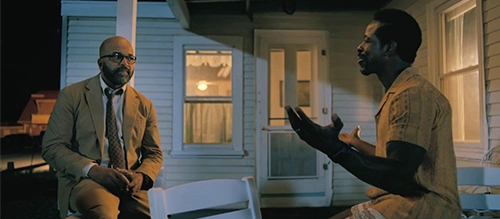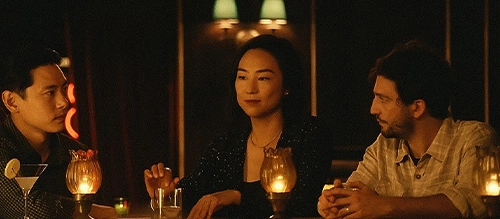2024 Oscars Best Picture Nominees Ranked
The Academy of Motion Picture Arts and Science’s class of Best Picture nominees in 2024 is an eclectic group made up of internationally renowned non-English language films, American dramas, and some of the best and most-profitable blockbusters in years.
This year’s selection features three films directed by women, the most for any single year in Oscars history, and has shone a spotlight on two debut films from up-and-coming talents, as well as one sophomore effort. There is representation in front of the camera, with Lily Gladstone of Killers of the Flower Moon becoming the first Native American to be nominated for Leading Actress, and more behind it, with Robbie Robertson the first Native American to be nominated for Score. This is also the first time since 2015 that multiple women have been nominated for Best Editing (for Best Picture nominees Killers of the Flower Moon and Oppenheimer).
Each film nominated for Best Picture in 2024 represents a singular vision, and most have been made by authorial filmmakers who have evolved on the themes of their previous work to offer decade-topping and even career-defining work. Their combined efforts have defined 2023 as a year for filmmakers by filmmakers, when audiences embraced higher quality films over template studio offerings. These are the best of the best, a largely inarguable list of Best Films from 2023, as chosen by the industry professionals who work on movies just like them.
In this edition of Ranked from The Film Magazine, we have compared and contrasted each of the nominees for Best Picture at the 96th Academy Awards in terms of artistry, impact, significance and overall quality to decipher which of their selections are better or worse than the rest. These are the 2024 Oscars Best Picture Nominees Ranked.
Follow @thefilmagazine on X (Twitter).
10. American Fiction

Cord Jefferson’s feature directorial debut American Fiction is a moving and funny slow-burn of a piece that you’re not going to want to miss. Its position in the lowest spot on this list is indicative of the strength of the field in 2024, as opposed to any distinct lack of quality as an individual piece.
Jeffrey Wright, nominated for Actor In a Leading Role at the 96th Academy Awards, invitingly leads a strong ensemble of character-first performances that are each given their moments to shine in an actor-friendly script filled with well-devised character arcs that offer opportunities to embrace comic-stylings, deep emotion, and even sheer dejection. Wright plays a university professor and writer who chooses to write “a Black book” when he witnesses the literary world embracing racially stereotypical stories. His new-found success comes with the commentary that white voices amplify stereotypical representations of what they consider to be “otherness”. A mix of pointed political remarks and light-hearted comedy ensure a steady pace.
Unlike all of the films to come on this list, there is little by the way of audio-visual experimentation or excellence to experience in this Best Picture nominee, and some strong tonal shifts don’t quite land despite how purposeful they unmistakably are. This is the kind of cinema to go in the quiet The Kids Are All Right category of Oscar nominees; a worthwhile time at the movies that will undoubtedly land a dedicated audience, but one that in the grander scheme of things lacks the uniquely cinematic ingenuity of the front-runners.
Recommended for you: 21st Century Oscars Best Picture Winners Ranked
9. Past Lives

A romantic drama rooted in existential philosophy, Past Lives combines Korean myth with western modernity to tell a moving and delicately presented tale that is part soft East Asian drama and part classic New York independent film.
This story is about a Korean-American woman named Nora (Greta Lee) whose one-time friendship and would-have-been romance with Korean man Hae Sung (Teo Yoo) is reignited when they rediscover each other online and finally reconvene in Nora’s new home in the United States. The narrative is set against the backdrop of the South Korean idea of in-yun, or what we might understand as the fate that brings two souls together across different or multiple lifetimes. Nora says that “if two strangers even walk by each other in the street and their clothes accidentally brush, […] it means there must have been something between them in their past lives”. The street-level presentation invokes the specific feeling of the New York-set films of the American New Wave, and the online and very connected universe we live in makes the entire narrative not only possible but uniquely contemporary.
The central performances – of which there are only three: Greta Lee, Teo Yoo, and Lee’s on-screen American husband John Magaro – are each utterly believable and do a lot of work to illuminate the feelings that exist underneath their dialogue. That is where this film excels, in the unspoken and the implied. As such, Past Lives does little to achieve the tag of being visually distinct, presenting its story with all the quality of any given year’s studio offerings, but resorting to tried and tested choices – such as the slow pan in on any perceivably romantic moment, or the soft focus of well-illuminated night shots – to achieve maximum emotional resonance. This is, no doubt, a sophisticated first-time offering from screenwriter-director Celine Song (a filmmaker who could turn out to be a prodigy), but one that leaves room to improve.
Past Lives is an affecting film that will break your heart if you catch it on the right day, and is a glimpse into the ideas and philosophies of one of the industry’s most promising names; a deserved Best Picture nominee that proves the importance of the Academy Awards when it comes to shining a light on the films and filmmakers looking to tell unique stories detached from the formula of mainstream studio offerings.

